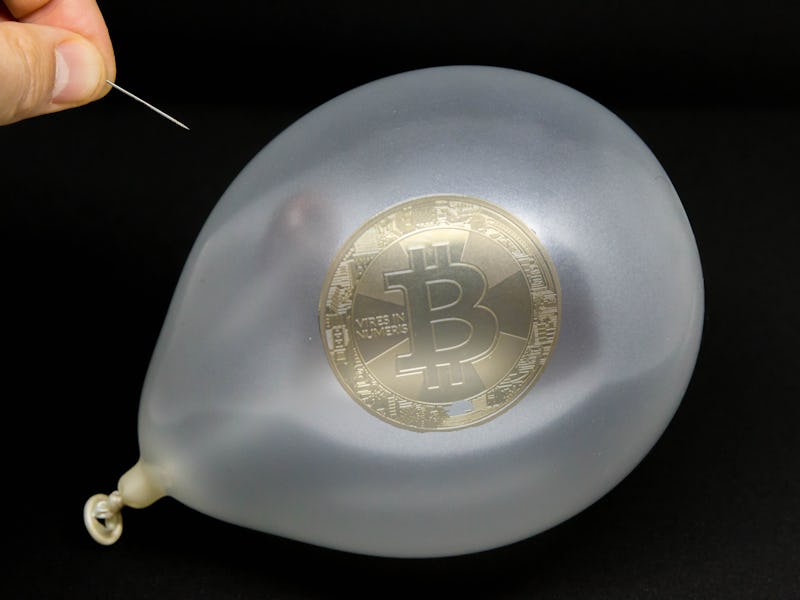Bitcoin Bubble Is Popping, According to Bank of America
Is this tulip mania all over again?

As one of the largest financial institutions in the United States, Bank of America (BoA) has come down hard on cryptocurrencies. In a paper released Sunday, a team of researchers at the bank argued that bitcoin is one of the “greatest asset price bubbles in history” and that it has already popped.
The group, which was lead by BoA chief investment strategist Michael Hartnett, suggested that the current market is evidence of the bursting bubble. Since cryptocurrency’s spike in December 2017, the sector has seen about a 60 percent correction in 2018. At its peak, the world’s largest token by market capitalization was worth upwards of $19,000, but as of Wednesday 11:25 a.m. Eastern, bitcoin is valued at $6,929, according to CoinMarketCap.
The bank released a graph comparing bitcoin’s wild price fluctuations to other economic bubbles in history, like the U.S. stock market in 1929 and the Dutch tulip bubble in 1637. Based on these figures, bitcoin would be the biggest bubble out of all of them.
The digital currency has the greatest increase in the value over time. At its peak, bitcoin’s price rose to about 60 times more than what it was valued at three years before. The second highest appreciating bubble was the tulip mania that seized the Netherlands centuries ago, prices for the flour soared by a factor of 40, said the researchers.
This chart also depicted that once the prices of these bubbles crashed, they stayed at their adjusted prices for good. It might still be too early tell if bitcoin will follow the same path, but recently, the digital currency has struggled to stay above $7,000.
These predictions might be a total bummer for cryptocurrency enthusiasts, but it’s important to keep in mind that financial institutions like BoA have actively tried to curb digital currencies. The bank banned all cryptocurrency purchases on its credit cards, citing risks involved in trading bitcoin and other tokens in February.
It might also be in the interest of many big banks to try and stop the widespread adoption of cryptocurrencies. Bitcoin is a completely decentralized currency, meaning there is no need for middlemen, like financial institutions, to play a role in transactions.
A future where everyone uses bitcoin instead of fiat currencies could mean a future with limited bank presence. While these BoA researchers might be doing their best to present the facts, they work for an institution that is intrinsically opposed to cryptocurrencies. This could lead to some biased in what this paper proposes.